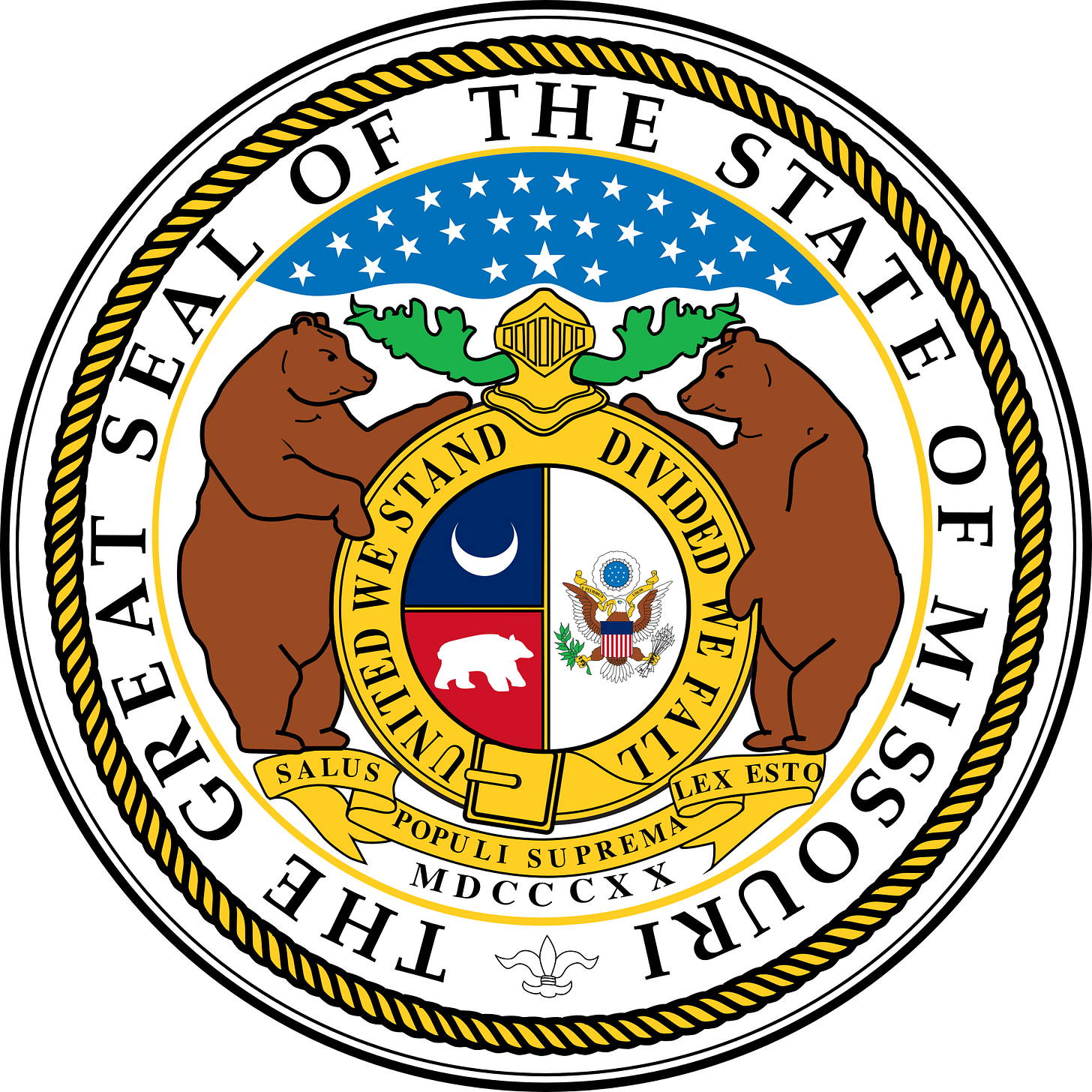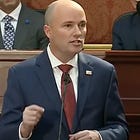Missouri Court Upholds Trans Care Ban. SCOTUS Probably Right Behind!
Yes we read the decision. It is terrible.
Last week while most of the US was ritualizing thankfulness and the slaughter of winged bipeds, Missouri was engaging in another of the traditional rituals of our times: banning access to gender-related healthcare for trans folks that is not banned for cis folks.
The law had been passed as Missouri SB 49 in June of 2023 with state Attorney General Andrew Bailey leaping to leverage it against healthcare providers last summer. The ACLU immediately filed the suit Noe v. Parson on behalf of teens and parents and asked in July for the law to be stayed while proceedings continued. The Cole County Circuit Court judge in the case, Craig Carter, denied the request for injunction last year and has now rejected the suit in its entirety. The ACLU has declared its intent to appeal the judgment up through Missouri’s state court system, but with a similar lawsuit against Tennessee headed to oral arguments at the federal Supreme Court this Wednesday it’s very possible that the appeal may never get a substantive hearing.
As a result, trans healthcare very probably will be illegal in the state until at least 2027. Hormones, puberty blockers and surgical interventions are all banned under the law, though it contains a natural sunset after four years, a compromise made to increase the credibility of stating that the ban was for the purpose of preventing “experimentation” on teenagers, rather than hostility to trans people generally. (Ha ha, Missouri Republicans are such comedians.) The sunset provision suggests that the state government will continue to monitor the state of research on adolescent trans health, though the arguments in circuit court and the decision of Judge Carter suggest quite the opposite.
Noe v. Parson is particularly interesting for its parallels to the federal case US v. Skrmetti. Both cases started with two claims, with courts choosing to address only the first, equal protection, while largely or entirely ignoring the second, parents’ rights to make healthcare decisions for minor children. The equal protection claim is made obvious by the frequent mention in the law that the ban only covered hormones and surgeries accessed “for the purpose of assisting an individual with a gender transition.” The phrase occurs five times in SB 49, but its frequent use implicitly concedes that these “experimental” procedures are going to be accessed continually in Missouri, without interruption, by cis children under the age of 18. Apparently experimentation on cis kids is just fine with Governor Mike Parson and the legislature, but trans kids accessing the exact same “experimental” procedures is a bridge too far.
Equal protection claims on the basis of disability have been traditionally subject to only a rational basis test that allows legislatures wide latitude to craft laws so long as these laws have a rational relationship to any legitimate interest of governments. “Rational” does quite a lot of heavy lifting here. As former Supreme Court Justice John Paul Stevens said, “The Constitution does not prohibit legislatures from enacting stupid laws.” As a result, the ACLU chose to pursue only the equal protection claim based on sex, which has a history of “intermediate review” or “heightened scrutiny.” Some have called this “rational basis with teeth,” meaning that in cases of different treatment on the basis of sex governments must show that their laws advance “important” interests of government, and that the relationships between those ends and laws’ means are “substantial” and not merely nominal.
Unfortunately, in both lower courts’ decisions in Skrmetti and here in Noe v. Parson, judges have chosen to ignore the more stringent requirements of heightened scrutiny. Judge Carter’s excuse is predictable, disappointing, and representative: “The Act is subject only to rational-basis review because it does not disadvantage either sex.” The federal case also seems likely to be decided based on mere rational review. As NBC reports:
In his reply brief to the Supreme Court, Tennessee Attorney General Jonathan Skrmetti argued that the law doesn’t discriminate based on sex but rather “draws a line between minors seeking drugs for gender transition and minors seeking drugs for other medical purposes” and that “boys and girls fall on both sides of that line.”
There is a long history of courts finding such arguments persuasive before ultimately recognizing them as specious. In Loving v. Virginia lower courts relied on the fact that the state’s ban on interracial marriage had historically been upheld for applying equally to Black and white residents, with both white and Black residents marrying within their government’s racial category and without it. Yet when the Supremes overturned decades of support for such bans it made clear that equally banning something on the basis of race was still banning something on the basis of race.
For intermarriage laws, the apparent violation of equal protection meant that the court would apply strict scrutiny — the hardest test for governments to pass when defending laws. Here an apparent violation of equal protection would only require intermediate scrutiny, but this is still vastly more difficult for laws to hurdle than the rational basis test’s barrier. The US saw that in the history of queer marriage cases, where courts denied again and again that sex discrimination was occurring at all, then upheld same-sex marriage bans using rational basis. Yet as soon as intermediate scrutiny was applied the laws failed.
Wonkette confidently predicts that 50 years from now bans on trans healthcare will be widely and legally acknowledged to be equal protection violations. How many legislatures like Missouri’s and judges like Craig Carter will confidently affirm the opposite before finally conceding that they were wrong all along? And how many years will those concessions take?
On Wednesday we will get more insight into how far the Supreme Court will go in backing these errors, but with its current makeup the answers can hardly be anything less than dozens in both states and years. Hell, Wonkette even remembers Evan talking about this in 2016. That’s eight years ago already! What did he say then about Texas’s attempts to ban trans healthcare?
Sure do hope everybody votes for Hillary Clinton in November, because we can't imagine what it would look like if this case made it to the Supreme Court after Donald Trump had a chance to fill an empty spot or two.
Yes, you are allowed to cry as soon as your hysterical laughter stops. Or during. Unlike Missouri, Wonkette supports you in making your own personal choices.
Previously on banning trans healthcare!
Your friendly, neighborhood Crip Dyke also writes Pervert Justice!









I’m old enough to remember when the tea party said government shouldn’t get between you and your doctor.
These people have always been full of shit hypocrites.
I heard some volleyballer from the Idaho team on CNN yesterday talking about the sports issue and she just sounded dumb as a fucking box of rocks.
Just fucking DUMB.
These people don't even have good arguments for what they claim to believe.